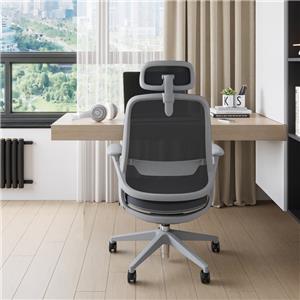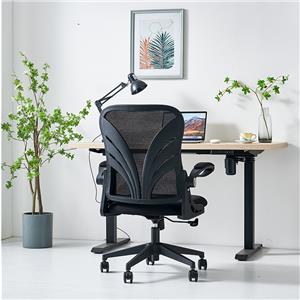If you sit still for a long time, you don’t know that “severe buttock syndrome” has come to your door
Many office workers sit at their desks all day every day, and even when they get home on their days off, they just want to collapse. This lifestyle, day after day, year after year, has seriously damaged the health of some people's buttocks. They sit and watch TV, play on their mobile phones, and sit and play computer games. Is this normal for being at home during the holidays? If so, then be careful! Your butt may have been quietly suffering from "dead butt syndrome"! Today we will study what "dead butt syndrome" is, how to determine whether the butt is "dead", and how to save a "dead" butt.
When you sit for long periods of time, your gluteal muscles will gradually become sluggish and in a flabby and weak state where they are pressed down by most of the body's weight. Over time, the brain gradually adapts to this abnormal intensity of tension, and the firing of nerve signals becomes weaker and weaker. When we need to contract the gluteal muscles, it seems to have forgotten its original function and cannot complete the contraction it should, resulting in a series of symptoms such as pain in the lower back, hip and knee joints. Medically known as "gluteal amnesia", it is also known as "dead butt syndrome". "Dead glute syndrome" usually refers to the "death" of the gluteus maximus, which plays a vital role in maintaining the stability of the hip joint and lower limbs. It is the main driving force for running, climbing stairs, sitting and standing, etc. source.
Is there "dead butt syndrome" in the butt?
Running and climbing stairs become more and more strenuous, your knees will feel sore after walking for a long time, and you can’t even stand up after sitting for a long time...you need to pay attention at this time! Come and test whether your butt suffers from "dead butt syndrome":
1. Pain and appearance detection
After sitting for a long time, do your buttocks feel numb and painful, or do you experience regular pain and discomfort in your hip, waist and knee joints? If your buttocks disappear and your butt becomes soft and unsightly, you may have "dead butt syndrome".
2. Action test
Stand in front of a mirror, raise your hands above your head, and perform squats. If you find that you are unable to keep your upper body straight and instead lean forward with your knees drawn inward, a condition known as "knees-in," this may be a sign that you have severe gluteal syndrome.
3. Single-leg glute bridge
Bend one foot and step firmly on the knee, straighten the other foot off the ground, and lift the buttocks hard so that the bent knee and thigh form a 0° angle with the body. At the same time, the upper back should support the ground.
You need to feel whether the gluteal muscles are exerting force or other muscles are compensating. If you feel tired in other muscles (lower waist, knees) instead of gluteal muscles, then you may also have severe gluteal syndrome.
Retrieve the "memory" of the buttocks
"Dead butt syndrome", this disease name sounds like a joke, but it is a serious problem that we all face. So, how can we effectively improve and prevent "dead butt syndrome"?
1. Get up after sitting for at most 1 hour
Don't let your hips stay in a stiff position for a long time. This is the first step in awakening hip memory.
Resolutely resist sitting for long periods of time. Get up and move for 1 to 3 minutes every hour, and do some simple stretching exercises to move your hips.
2. Adjust your sitting posture
When working, do not choose a chair that is too low or too soft. When sitting down, find the most stable position of your buttocks on the chair, and tilt your body slightly forward so that the back of your thighs are in close contact with the surface of the chair.
3. Maintain a normal weight
It is recommended that everyone control the intake of salt, sugar and fat, keep various indicators and weight within the normal range, and avoid excessive pressure on the lower limbs.
4. Supplement nutrition
In your daily life, you should pay attention to a balanced diet and eat an appropriate amount of foods rich in protein and vitamin D; spend more time in the sun to strengthen bones and muscles.
Warm reminder: It is recommended that everyone adhere to the above points, which can prevent "amnesia" of the gluteal muscles to a certain extent.




